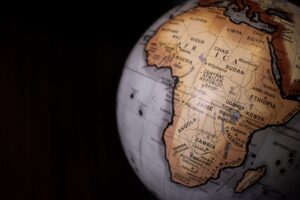IDEMIA Smart Identity has reaffirmed its partnership with Nigeria’s National Identity Management Commission (NIMC) to upgrade the country’s national biometric identification infrastructure, aiming to support a database of 250 million records. This significant expansion from the initial capacity of 100 million records is geared towards accommodating Nigeria’s growing population and aligning with the United Nations’ 2030 sustainable development goal of legal identity for all.

The upgraded system will feature advanced biometric matching capabilities, capable of handling up to 1 million identity verification searches daily, ensuring each Nigerian citizen has a unique identity within the civil database. It will also enable NIMC to attain compliance with OSIA, or the Open Standards Identity API, an initiative led by the Secure Identity Alliance (SIA) that aims to define open, interoperable standards for identity management.
The main goal of OSIA is to ensure seamless interoperability among different identity management systems and components, such as biometric devices, databases, and software applications. By adhering to OSIA standards, organizations like the NIMC can ensure their systems are compatible with a wide range of technologies and can easily integrate with other identity management ecosystems.
“Taking this next step in the enhancement of our system with IDEMIA Smart Identity was a natural choice for us,” said Abisoye Coker-Odusote, the CEO of NIMC and the Chairman of the OSIA Advisory Committee. “We wanted to ensure that we deliver the best-in-class solution to our fellow Nigerians, and the pure power of the biometric matching we will receive ensures that the solution is future-proof for our growing population.”
Backed by the World Bank’s ID4D program, IDEMIA’s effort is expected to position Nigeria’s system among the world’s leading biometric systems, rivalled only by India’s Aadhaar.
ID4D, or “Identification for Development”, is a global initiative led by the World Bank, aiming to support countries in creating efficient, inclusive, and secure digital identification systems. The ID4D initiative is part of a broader effort to achieve the Sustainable Development Goals (SDGs), specifically Target 16.9 of the SDGs, which calls for providing legal identity for all, including birth registration, by 2030.
Aside from supporting the World Bank’s sustainable development efforts, the contract will further raise IDEMIA’s profile as a major solutions provider on the continent. As IDEMIA Smart Identity’s MEA SVP Olivier Charlanes explained, “this contract, in the most populous country in Africa, demonstrates IDEMIA’s capability to deploy its technologies on a very large scale.”
–
April 9, 2024 – by Alex Perala






Follow Us